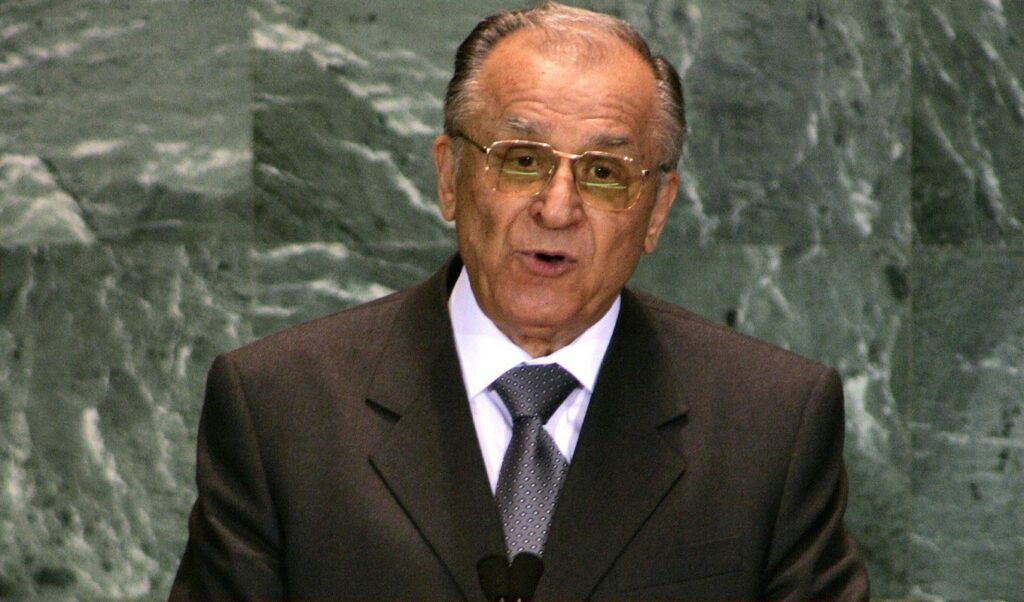Former Romanian president Ion Iliescu died today (5/8) at the age of 95. He was a man who had been characterized by many as the “father figure” of the Romanian nation, however he was accused of being responsible for the country’s chaotic transition from communism to democracy.
Read: Romania: Deputy prime minister resigns – Due to old corruption scandal
“With deep sorrow the government announces the death of former Romanian President Ion Iliescu who passed away today, August 5, 2025,” states an announcement from the country’s government. Details regarding the organization of the state funeral will be announced in the coming days.
Iliescu was associated with the chaotic transition of the Eastern European country from communism to democracy, before seeing his image tarnished by accusations of “crimes against humanity.” He was hospitalized with lung cancer in early June at a Bucharest hospital, with his health condition described as “critical” last week.
Who was Ion Iliescu
Ion Iliescu was born on March 3, 1930 into a communist family in Oltenița (south). His mother earned the family’s bread by washing clothes, and his father was a railway employee. He studied engineering in Moscow before rapidly rising through party ranks and becoming Youth Minister under Nicolae Ceaușescu.
After the dictator’s arrest in December 1989 and execution, Iliescu took power, heading the National Salvation Front (NSF), and promised to stabilize the country. His opponents, however, accused him of orchestrating violence during the 1989 revolution against the communist regime that left more than 850 dead and thousands wounded.
He was triumphantly elected head of state in May 1990 under a multiparty system, receiving 85% of the vote. A close friend of the last Soviet Union leader Mikhail Gorbachev, Iliescu opposed any political purge aimed at banning former senior communist officials from running for public office.
A month later, he would cause worldwide concern by encouraging thousands of miners who had arrived from the provinces to violently disperse a student movement that was blocking traffic in Bucharest, with students protesting his interventionist policies.
He was re-elected in November 1992 (61%), and is credited with Romania’s transition toward a market economy. He was defeated in the 1996 elections before returning to power in 2000, leading his country toward NATO and European Union membership, while coloring this Atlanticism with paradoxically anti-liberal rhetoric. “I am poor, but honest,” he used to boast. However, in 2017, his summoning by the judiciary would prove to be his last public appearance.
Indicted twice
He was subsequently indicted twice for “crimes against humanity” to prove his responsibility in the bloody riots of December 1989. But the hearing never took place and the case file was returned to the prosecutor’s office, where it remains today. He was also accused for his role in suppressing the 1990 demonstration, which left four dead.
Iliescu rejected the charges, calling the prosecutors a “national shame” and facing the suspicions against him very harshly, despite having “played a significant role in the country’s democratization.”
He remained popular in the provinces, where his simplicity was appreciated and he was seen as an old-style “father figure,” reassuring in an era of deep upheaval, however, he was despised by intellectual circles.




